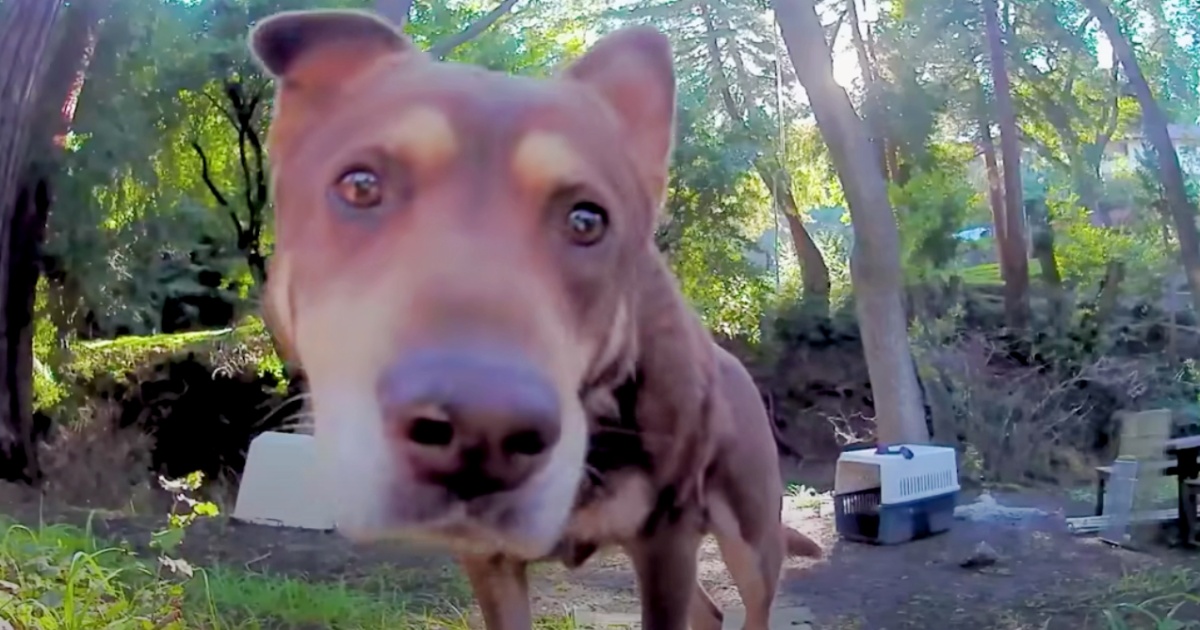Coconut milk shows up in all kinds of recipes, from smoothies to curries to desserts. Lately, some pet owners have started wondering if it’s okay to share a splash with their dogs. So, can dogs actually drink coconut milk?
Let’s look at what the experts say, weigh the pros and cons, and talk about how to safely let your dog try coconut milk. By the end, you’ll know if coconut milk is a safe treat to offer now and then.
What Is Coconut Milk?
Coconut milk is a creamy liquid that comes from pressing the flesh of mature coconuts. It is not the same as coconut water, which is the clear juice found inside young coconuts. This is how coconut milk is made:
- You only need two things: the white coconut meat and some water.
- First, grate the coconut flesh and blend it with water. Then, strain the mixture to get rid of any solid bits.
- Coconut water is naturally sweet and low in fat. Coconut milk, on the other hand, is much creamier and has more fat.
- Coconut cream is just a thicker, richer version of coconut milk. It has even more of the coconut’s fat.
While coconut milk has a rich, pleasant
Can Dogs Drink Coconut Milk?
Yes, dogs can have coconut milk, but only a little at a time.
- Coconut milk is not toxic for dogs, so a small amount is safe. It is not something they need, so only give it once in a while.
- Coconut milk has a lot of fat and calories, so too much can cause weight gain or upset your dog’s stomach. Give it as a treat, not every day.
- Pick coconut milk that is unsweetened and has no additives. Added sugar or sweeteners can be bad for dogs.
Potential Risks
Coconut milk can be safe for dogs, but there are a few things to watch out for:
- Coconut milk has a lot of fat, especially MCTs. A little is fine, but too much can make your dog gain weight or even cause health problems like pancreatitis.
- Some dogs might get an upset stomach, like diarrhea or vomiting, if they drink too much coconut milk.
- A few dogs are allergic to coconut. Watch for signs like itching, swelling, or stomach trouble.
- Look out for added sweeteners like xylitol, which is very dangerous for dogs. Even things like stabilizers or preservatives can upset your dog’s stomach or cause allergies.
Which Dogs Should Avoid Coconut Milk?
Some dogs are more at risk from coconut milk and should steer clear of it:
- Overweight dogs: Coconut milk is high in calories, so it can cause extra weight gain.
- Dogs with pancreatitis: The high fat in coconut milk can make this condition worse, so it’s best to avoid it if your dog has had pancreatitis before.
- Dogs with sensitive stomachs: If your dog has digestive issues or food sensitivities, coconut milk might cause discomfort.
Potential Benefits of Coconut Milk for Dogs
Coconut milk is not packed with nutrients for dogs, but it can offer a few benefits if you give it as a treat now and then.
- Coconut milk has medium-chain triglycerides, a kind of fat that dogs can digest more easily. These fats can give your dog a quick energy boost and may even help with brain health in some cases.
- There is lauric acid in coconut milk, which has properties that can fight germs. This could help your dog’s immune system.
- Some people notice their dogs have shinier, healthier coats after having a little coconut milk. The healthy fats in coconut milk might be the reason.
Even though these benefits sound good, coconut milk should not take the place of a balanced diet for your dog. It does not offer as much nutrition as other important foods.
Risks and Side Effects of Coconut Milk for Dogs
Coconut milk can be good in some ways, but it can also cause problems if you are not careful. Here are a few things to watch for:
- Digestive Upset: Coconut milk is high in fat, which can be tough on your dog’s stomach. If your dog is sensitive, it might cause diarrhea or vomiting.
- Pancreatitis: If your dog has had pancreatitis or is at risk for it, skip the coconut milk. The fat can make things worse.
- Allergic Reactions: If your dog has not tried coconut milk before, just give a little at first. Look out for itching, swelling, or stomach trouble. If you notice any of these, stop giving coconut milk and call your vet.
- Sweeteners and Additives: Some coconut milk has sweeteners like xylitol, which is dangerous for dogs. Always check the label and pick plain, unsweetened coconut milk.
How to Safely Serve Coconut Milk to Dogs
If you want to give your dog coconut milk, here are a few simple ways to do it safely.
- Start with just a little coconut milk to see how your dog handles it. Try a teaspoon for small dogs or a tablespoon for bigger ones.
- Keep an eye out for any stomach issues or signs of allergies after your dog tries coconut milk. If you see anything out of the ordinary, stop giving it and check with your vet.
- Coconut milk is best as an occasional treat, not something your dog has every day. Always use it as an extra, not a replacement for their usual food.
- Creative Treat Ideas:
- You can freeze coconut milk in ice cube trays and give your dog a cube on a warm day.
- Try adding coconut milk to homemade dog treats. Mix it with safe ingredients like oats or peanut butter for a snack your dog will enjoy.
Veterinary Perspective
Most veterinarians say coconut milk is fine as an occasional treat, but it should not be a regular part of your dog’s diet. If your dog has health issues like pancreatitis, obesity, or allergies, check with your vet before trying anything new.
Summary
Coconut milk can be a tasty treat for your dog, as long as you keep it to small amounts. Go for plain, unsweetened coconut milk, and keep an eye out for any stomach issues or allergies. If your dog has health problems like obesity or pancreatitis, it’s safer to avoid coconut milk. If you’re not sure what’s best for your dog, check with your vet before trying new foods.
FAQS.
Is coconut milk safe for dogs to drink?
Coconut milk is generally safe for dogs in moderation. However, it’s high in fat, which may cause digestive upset if consumed excessively.
Can dogs have coconut milk in small amounts?
Yes, dogs can have small amounts of coconut milk, but it should be given occasionally to avoid gastrointestinal issues or weight gain.
What are the benefits of coconut milk for dogs?
Coconut milk contains vitamins and minerals, such as iron and potassium, that can support a dog’s immune system and hydration when given in moderation.
Can coconut milk cause diarrhea in dogs?
Coconut milk can cause diarrhea or upset stomach in dogs, especially if consumed in large quantities, due to its high fat content.
Are there any side effects of coconut milk for dogs?
Excessive coconut milk may lead to gastrointestinal issues, diarrhea, or weight gain due to its high fat and calorie content. Allergic reactions, though rare, are also possible.
Can coconut milk be used as a treat for dogs?
Coconut milk can be used as a special treat, but it should be given sparingly to avoid digestive issues and to maintain a balanced diet.
What type of coconut milk should I give my dog?
Choose unsweetened, organic coconut milk with no added preservatives or artificial sweeteners, as additives can harm dogs.
How much coconut milk can I give my dog safely?
A small amount (1-2 tablespoons) of coconut milk is typically safe for dogs. Larger quantities can lead to digestive upset or weight gain.
Can puppies drink coconut milk?
Puppies can have coconut milk in small amounts, but it’s not recommended as a regular part of their diet due to their delicate digestive systems and nutritional needs.




















 English (US) ·
English (US) ·